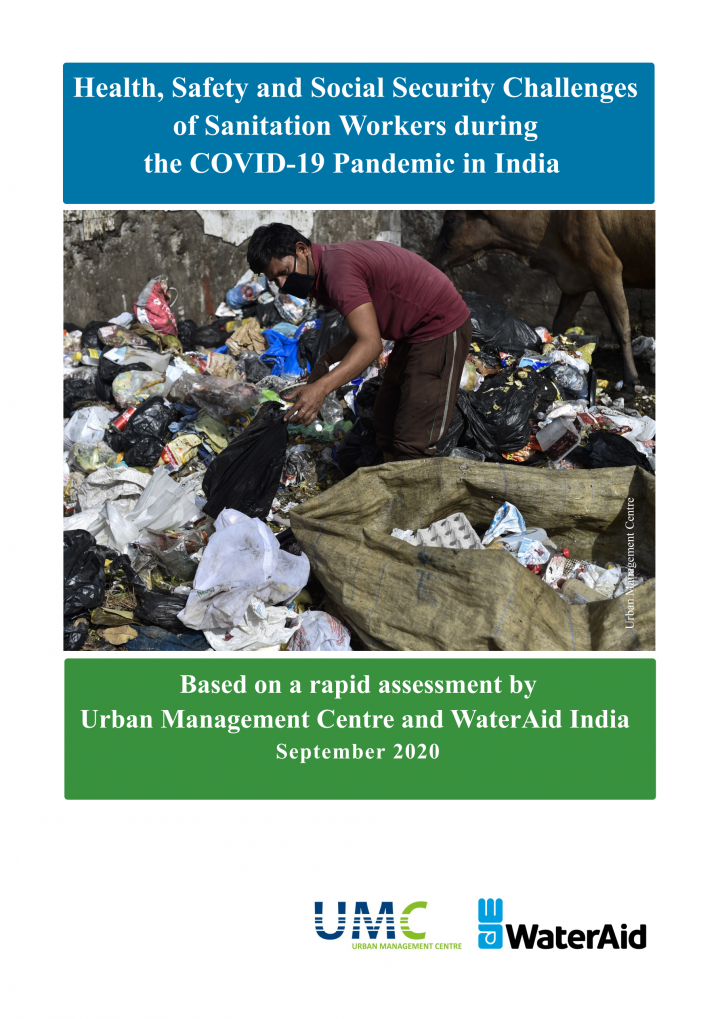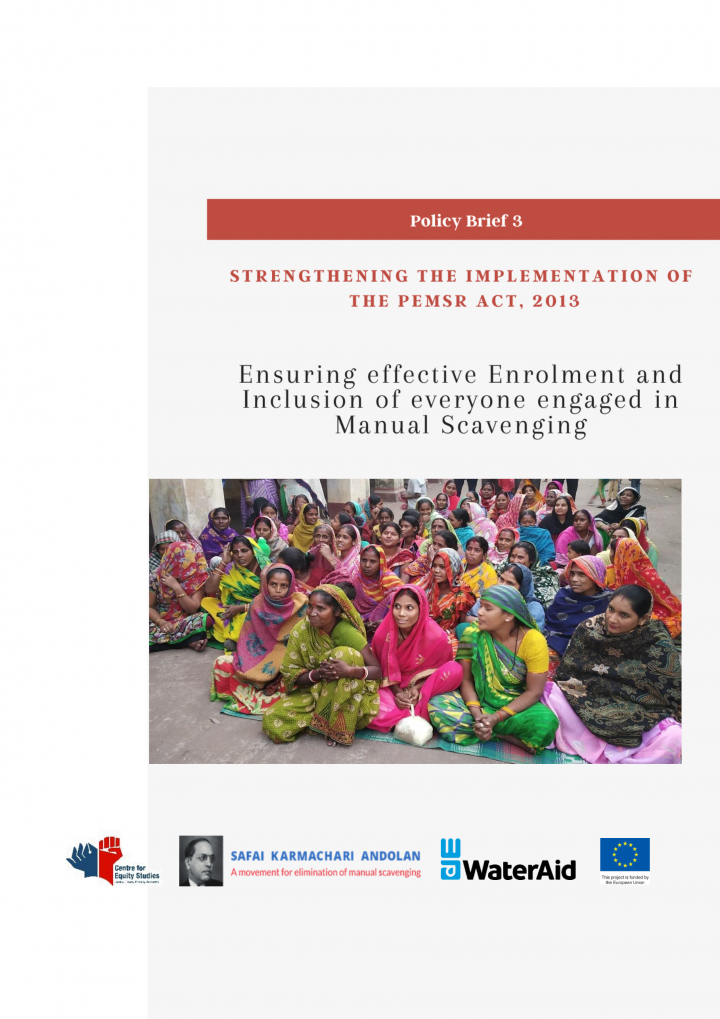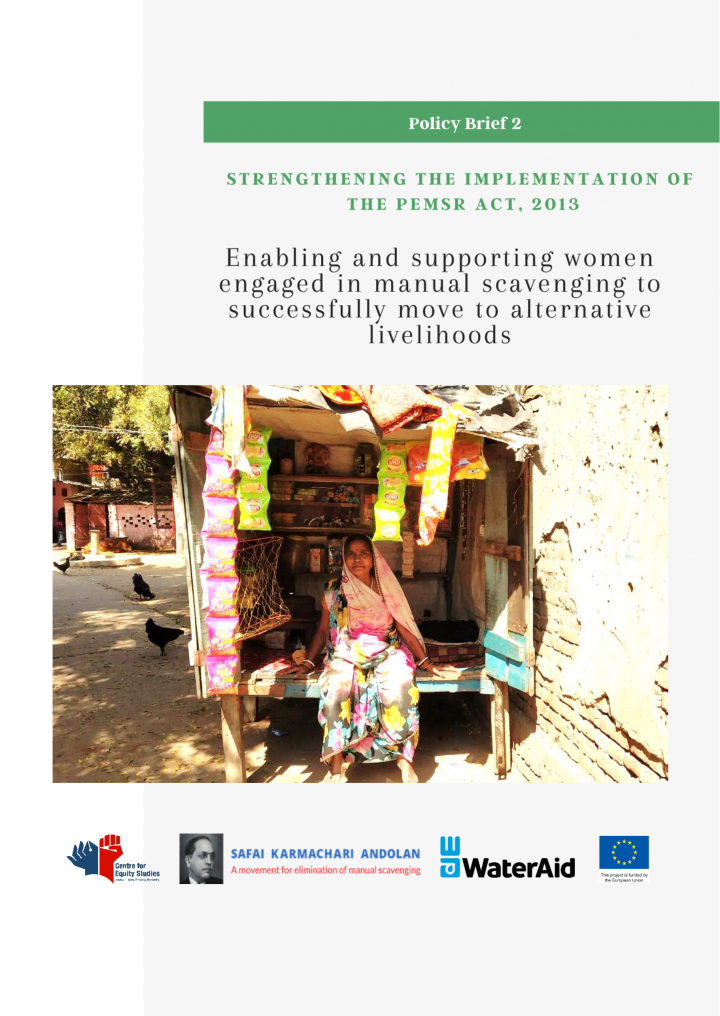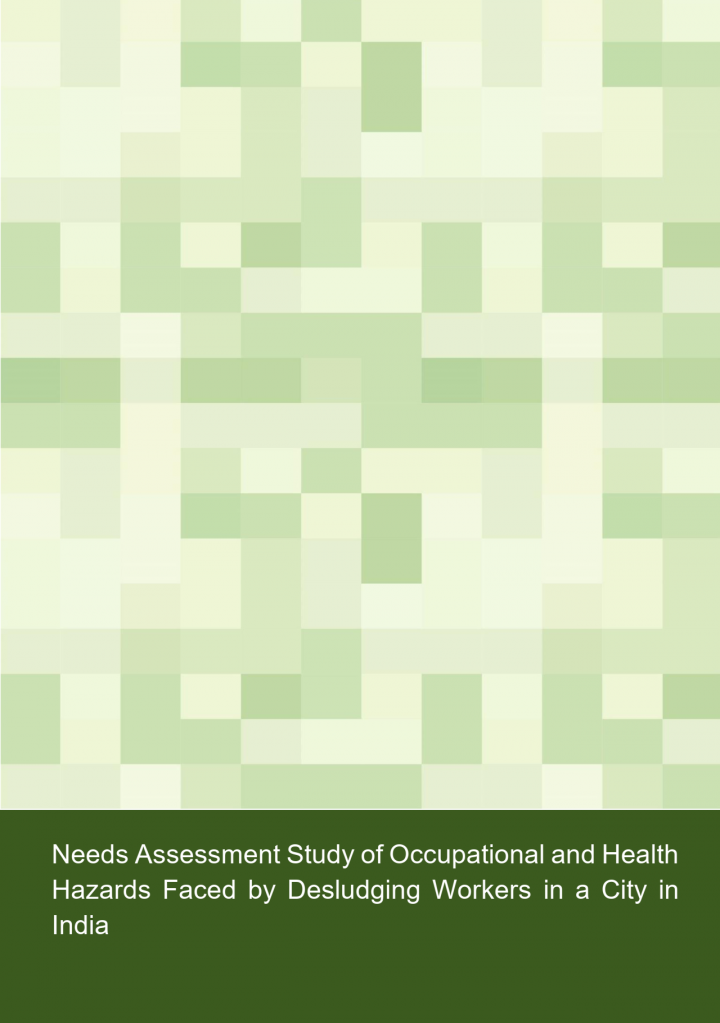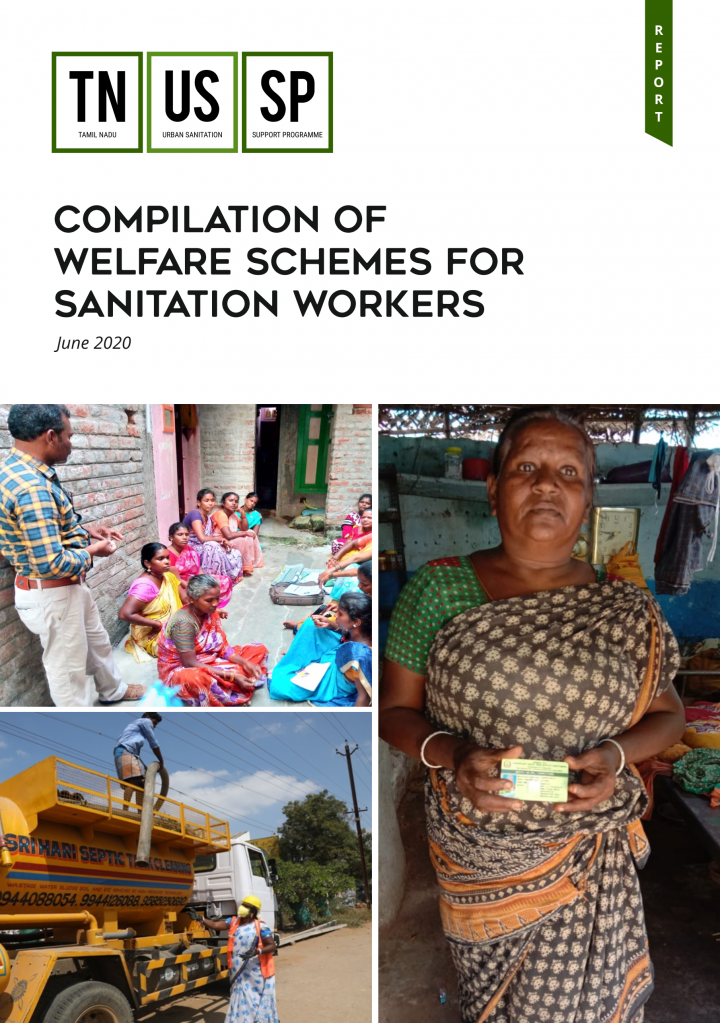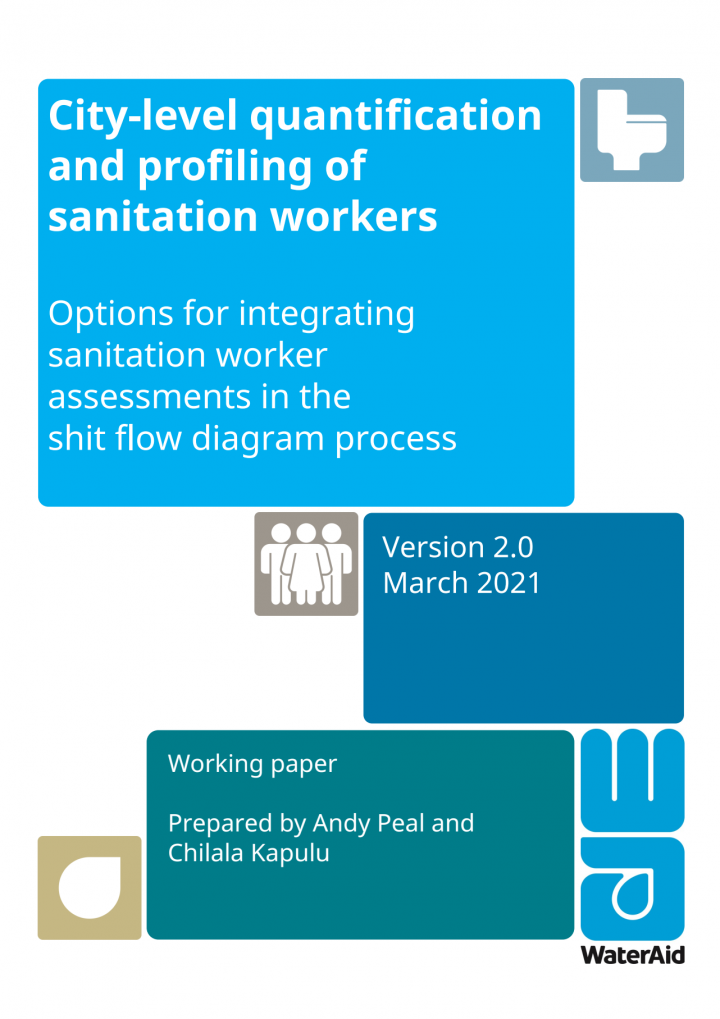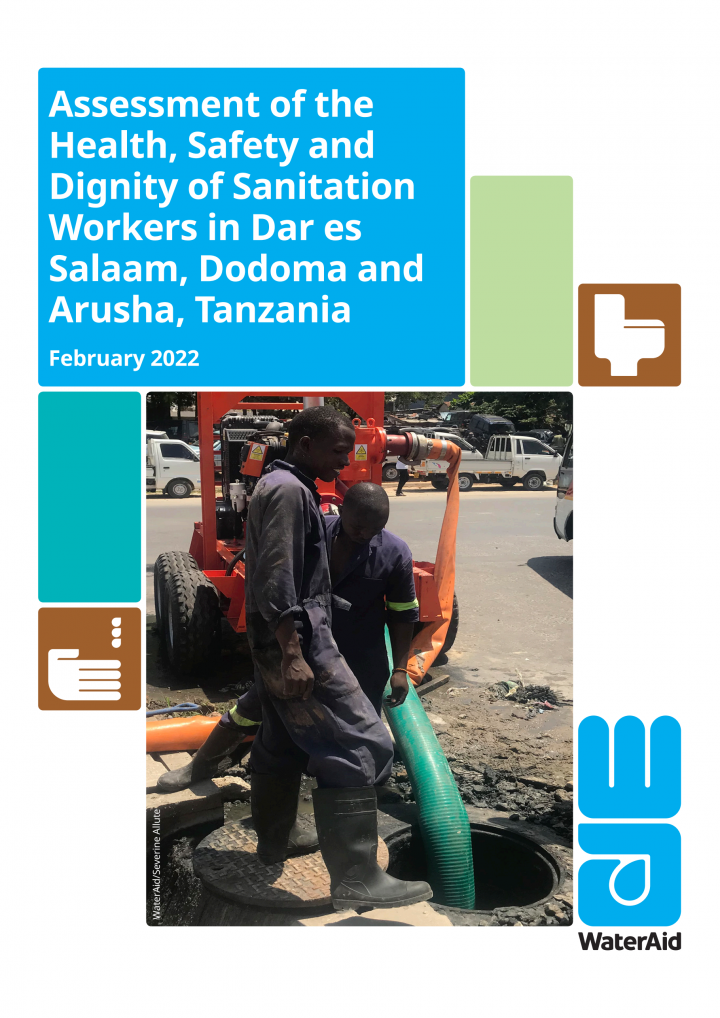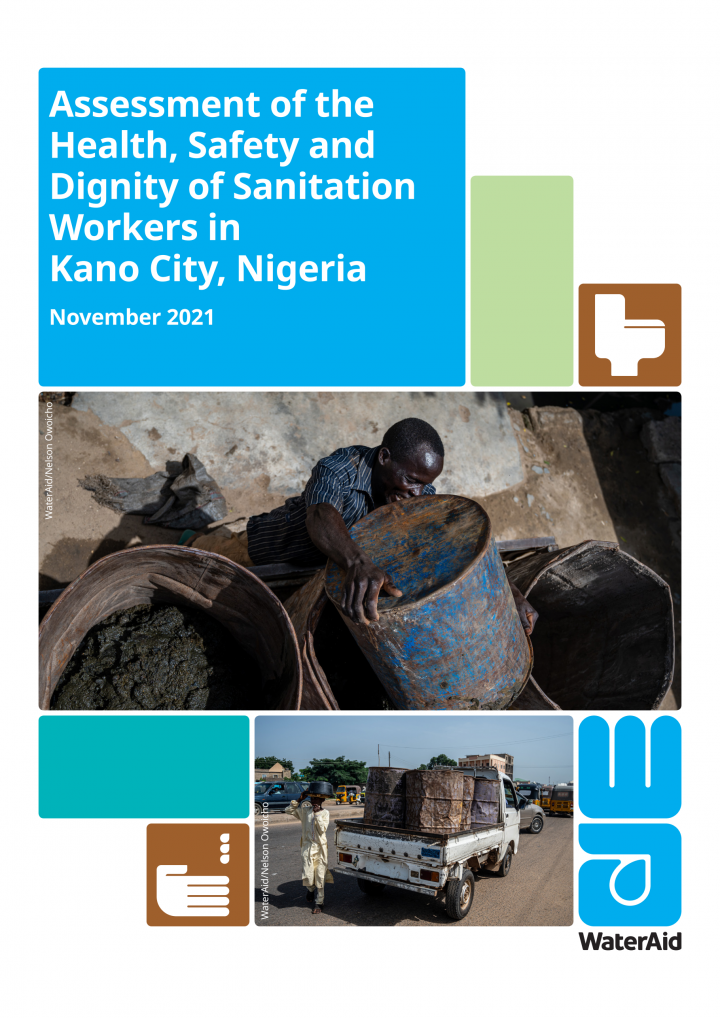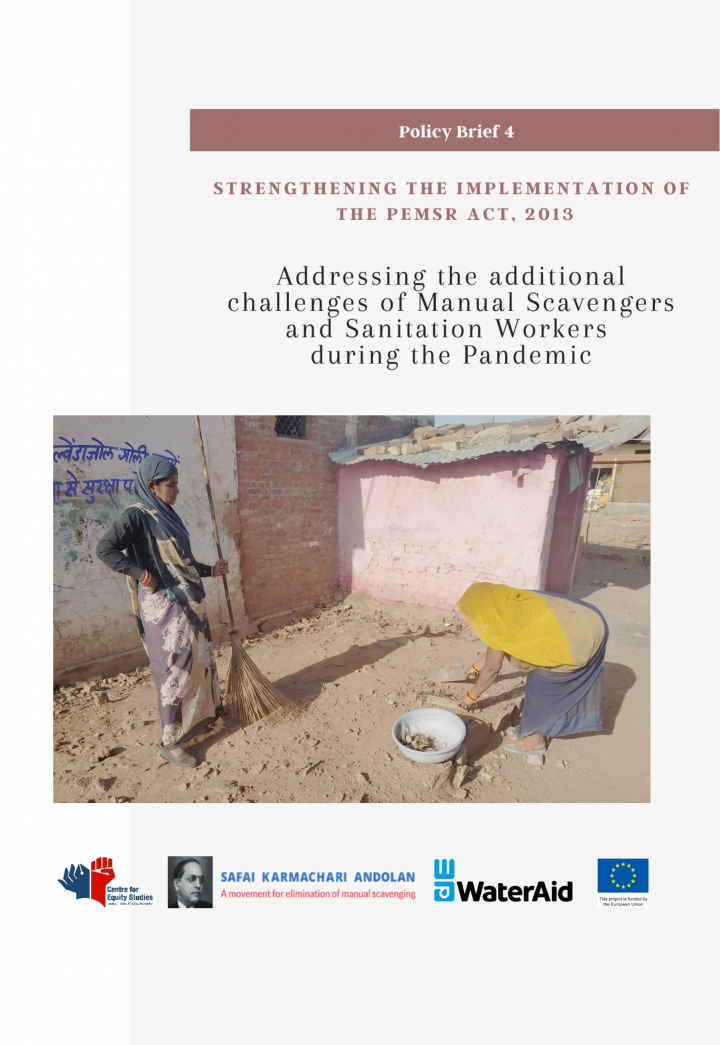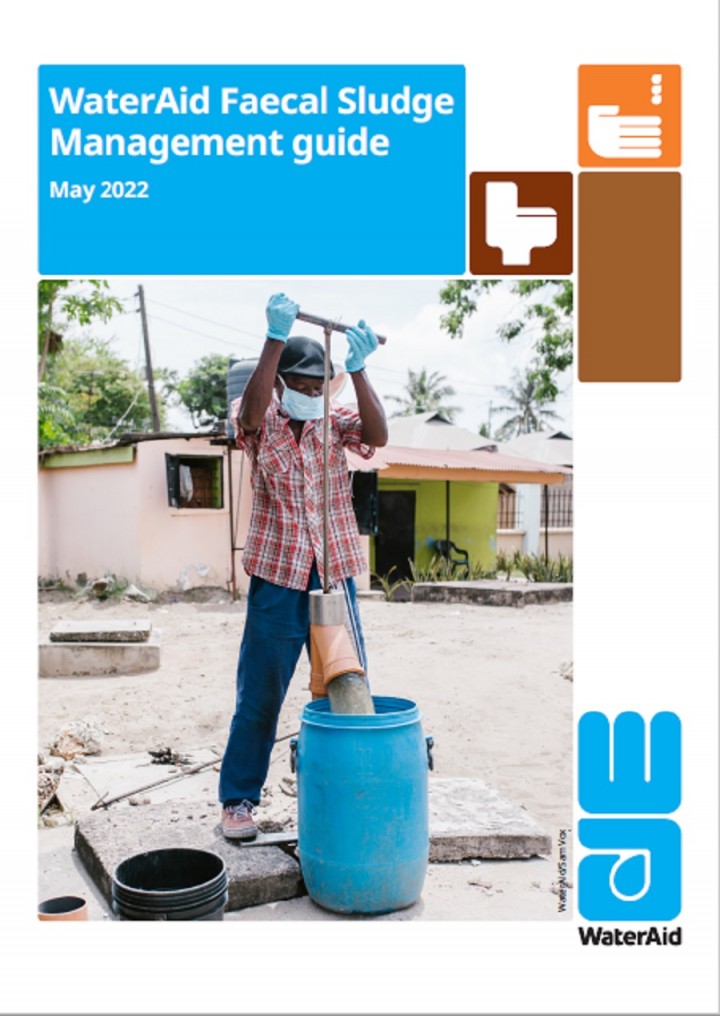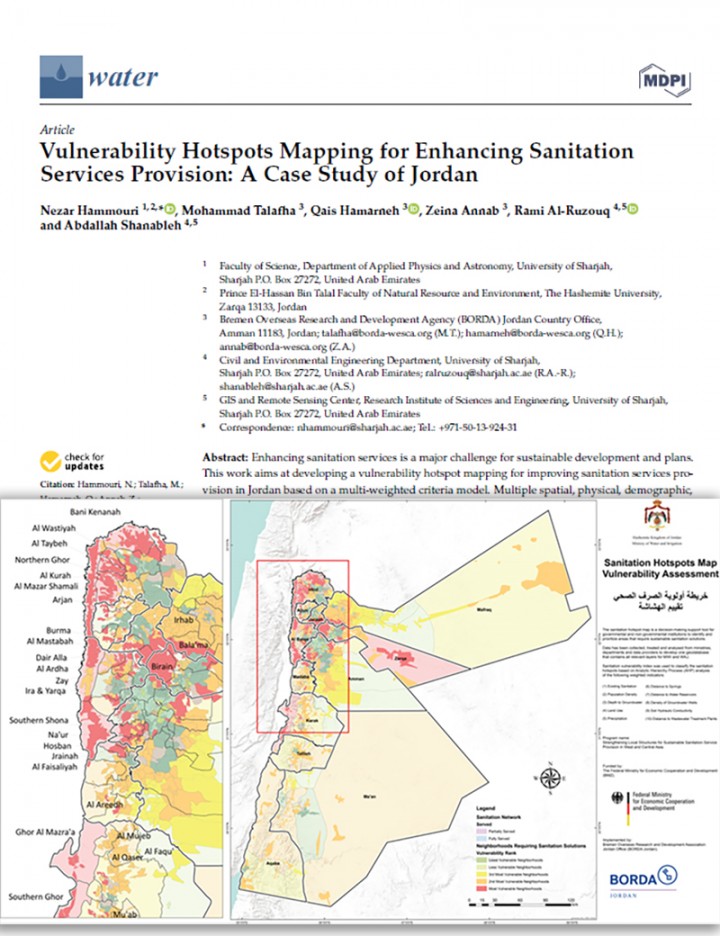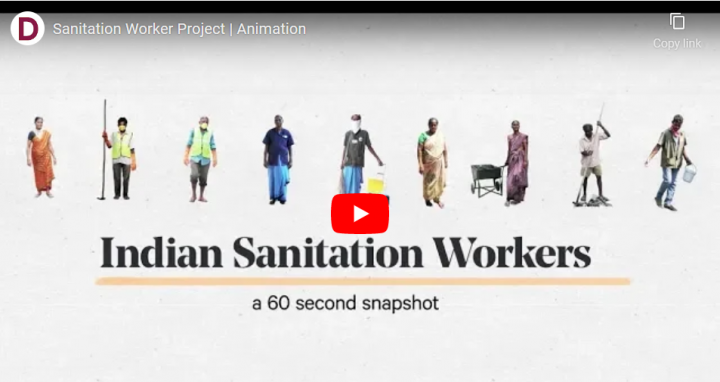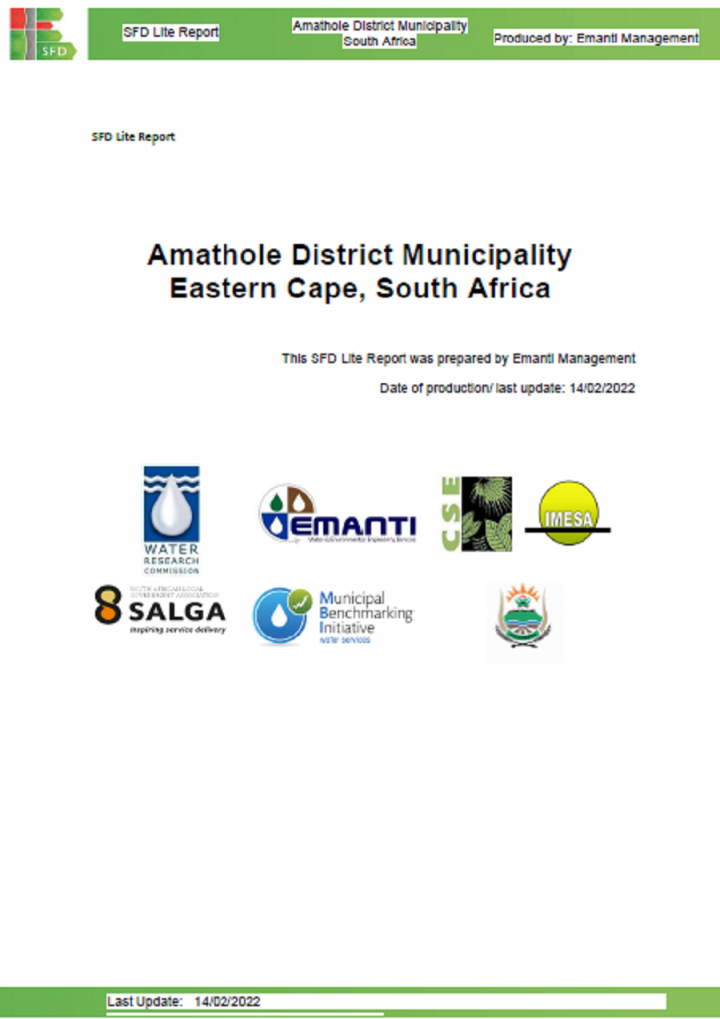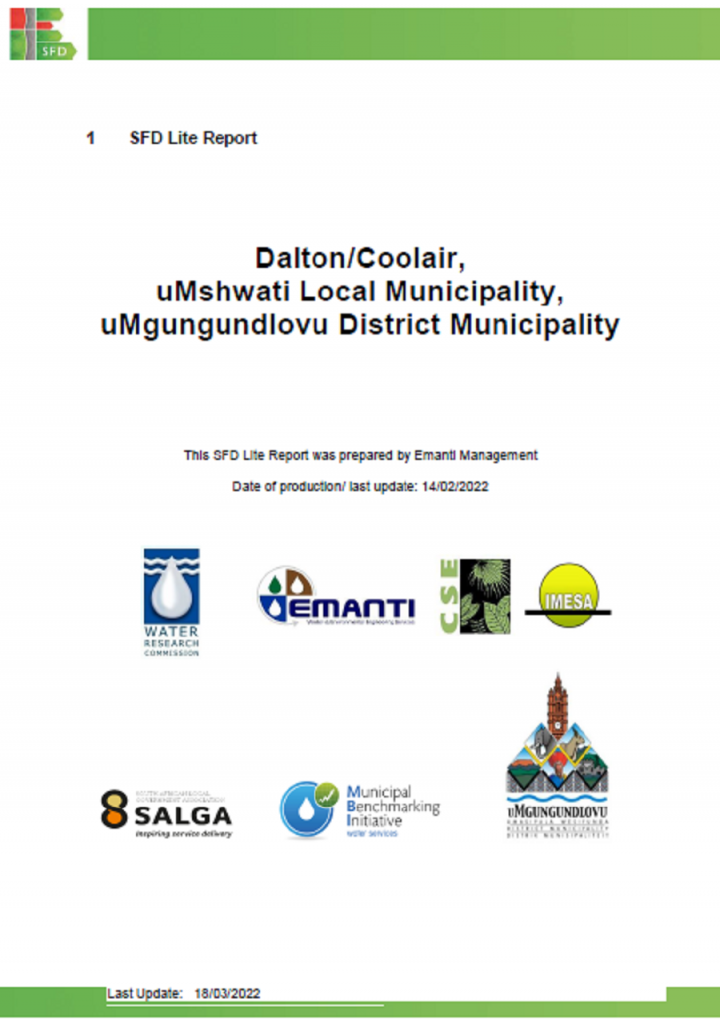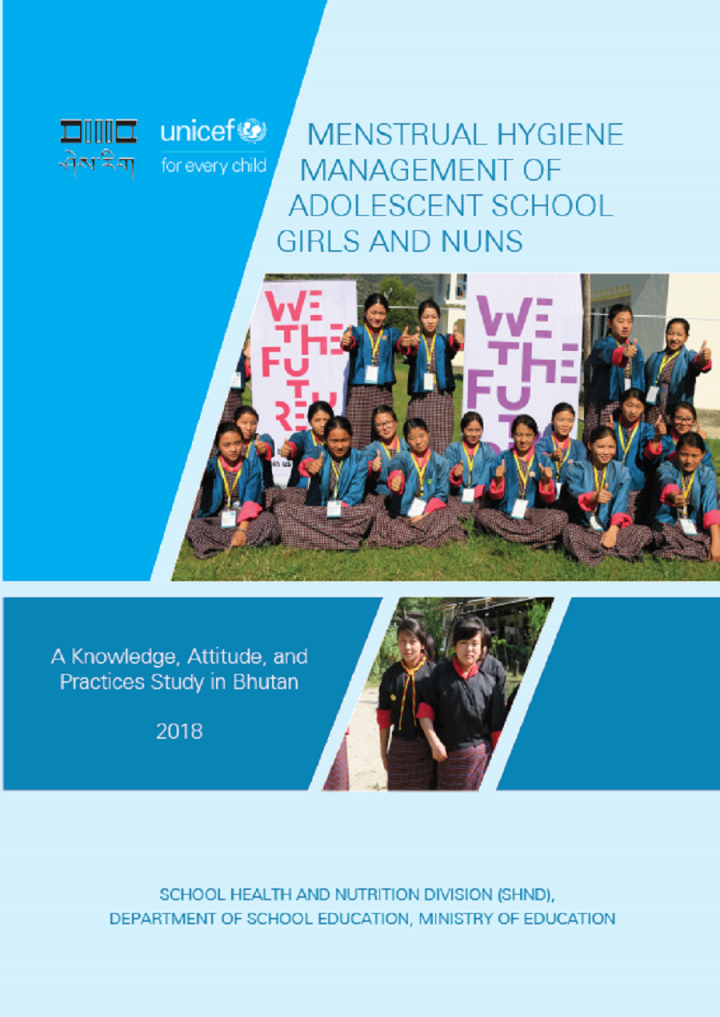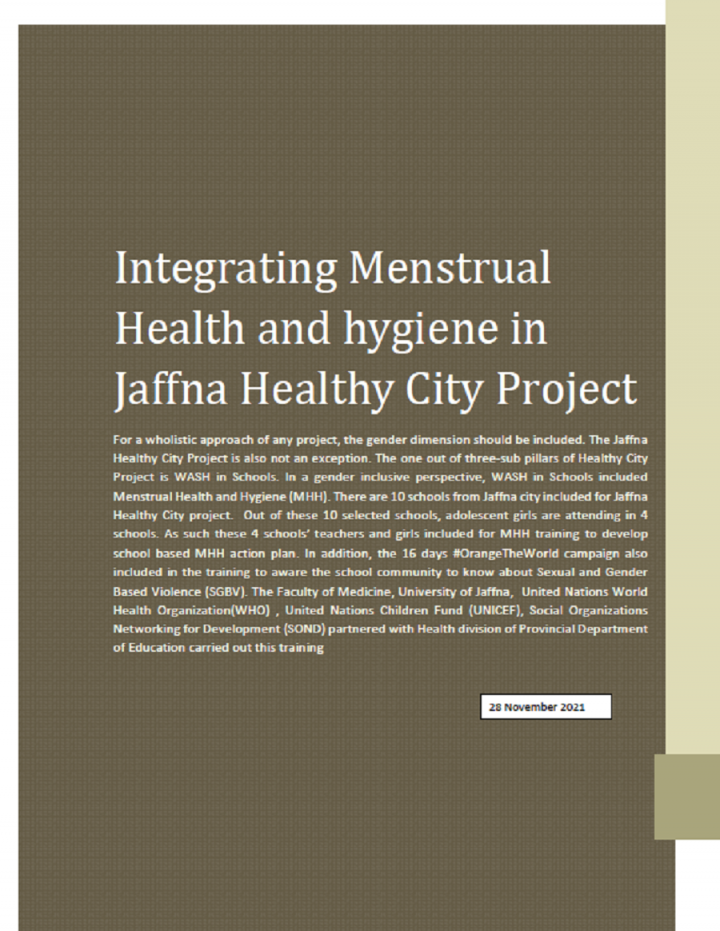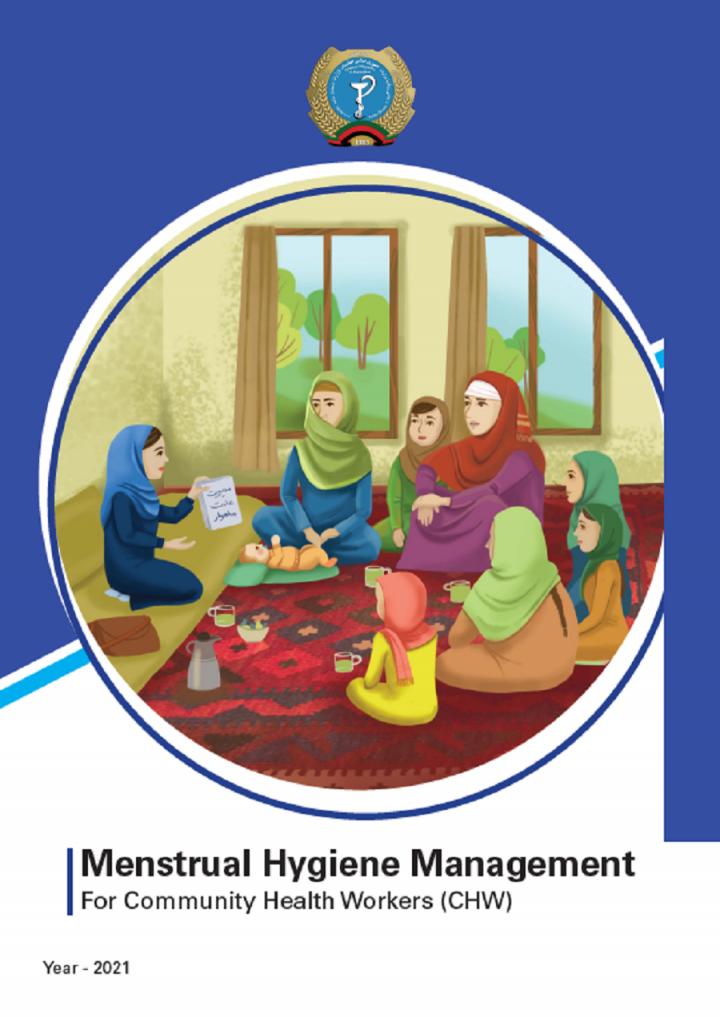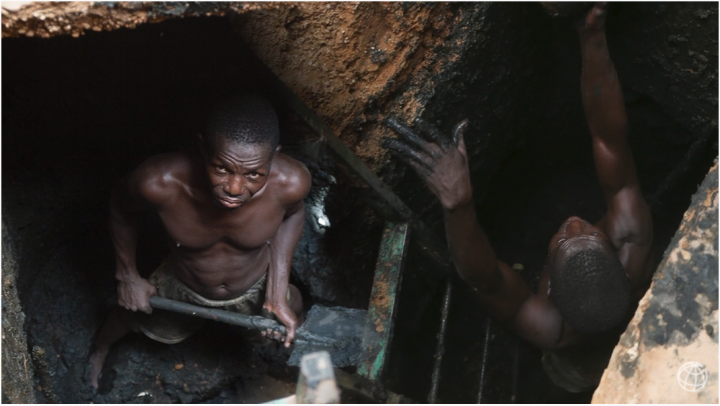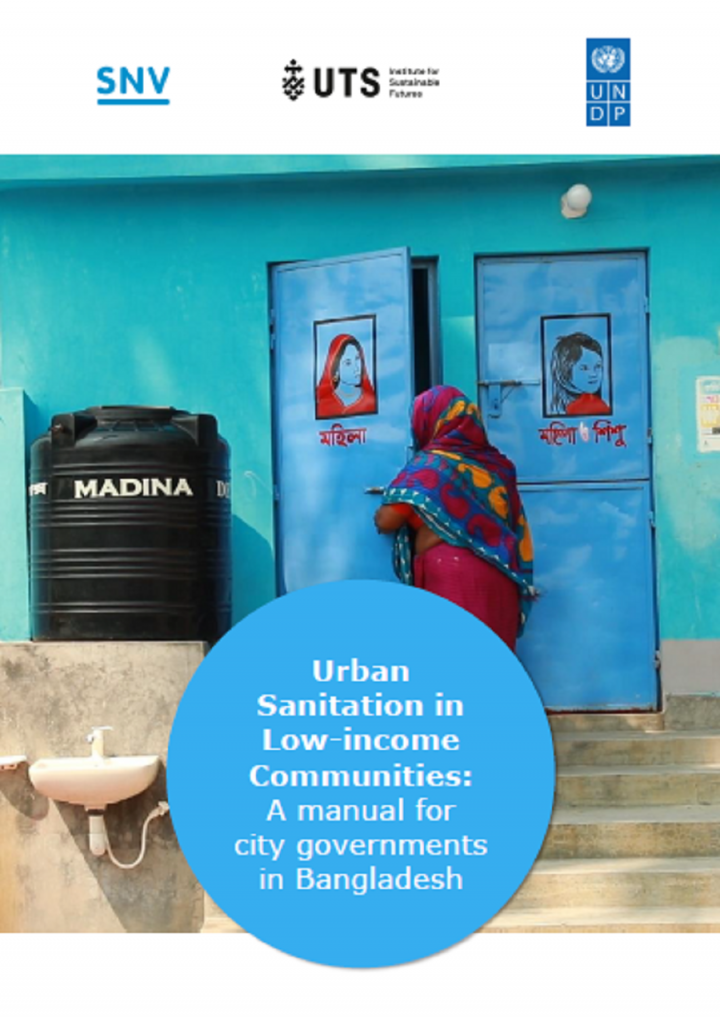UMC, WaterAid (2020) Health, Safety and Social Security Challenges of Sanitation Workers during the COVID-19 Pandemic in India
While sanitation workers already face several health and safety risks, financial challenges and stigma due to the nature of their work and caste-based discrimination, the COVID-19 pandemic has further added to their challenges and vulnerabilities. The Urban Management Centre and WaterAid India jointly conducted a rapid assessment to understand the health, safety and social security challenges faced by sanitation workers in cities/towns across India during […]
Mander, H., Kumbhare, S., Bhattacharya, A., Chanchani, M. (2020) Ensuring effective Enrolment and Inclusion of everyone engaged in Manual Scavenging
In the 64th year of the Republic the nation, it was recognized formally through a legislative act, for the second time after the initial 1993 act, that the “dehumanising practice of manual scavenging, arising from the continuing existence of insanitary latrines and a highly iniquitous caste system” that “still persists in various parts of the country” needs to be eradicated and those in this work […]
Mander, H., Kumbhare, S., Bhattacharya, A., Chanchani, M. (2020) Enabling and supporting women engaged in manual scavenging to successfully move to alternative livelihoods
In India, gender and caste plays a dominant role in the kinds of jobs that women in the workforce are employed in. It is well established that caste and patriarchy are the main compulsive factors that force people, especially women of the specific scheduled caste communities, into manual scavenging. They are into different forms of manual scavenging, mainly cleaning the insanitary dry latrines and carrying […]
IIHS (2019) Needs Assessment Study of Occupational and Health Hazards Faced by Desludging Workers in a City in India
Safe collection, handling and transport of fecal sludge is an integral part of septage management. Limited attention has been paid to the safe collection, transport, disposal and treatment of human excreta from septic tanks. Motorised emptying and transport involves a truck with a standalone or mounted vacuum pump along with a storage tank that is used to empty and transport septage. Typically, these desludging trucks […]
TNUSSP (2020) Compilation of Welfare Schemes for Sanitation Workers
Sanitation workers are the backbone of the public hygiene and waste management system. Despite providing an essential public service, their work is often unrecognised. A majority of the workers too are unaware of the social security and welfare schemes instituted by both the Central and State governments for their wellbeing, which prevents them from availing the benefits such as pension, differently-abled and education and women […]
WaterAid (2021) City-level quantification and profiling of sanitation workers : Options for integrating sanitation worker assessments in the shit flow diagram process
This report presents options for how to carry out a quantification and profiling through assessments of workers at city level. The report contains the suggested scope for a sanitation worker assessment, the dimensions to be assessed, questionnaires that could be used to generate data on these different dimensions, and possible options for presentation of both quantitative and qualitative data. The focus of the latter is […]
WaterAid (2022) Assessment of the Health, Safety and Dignity of Sanitation Workers in Dar es Salaam, Dodoma and Arusha, Tanzania
Sanitation workers provide an essential public service to reach Sustainable Development Goal 6.2, but often at the cost of their dignity, safety, health, and living conditions. A key barrier to providing support for this profession is the insufficient data on sanitation workers and their work environment. As such, the aim of this assessment was to explore opportunities to support sanitation workers in Tanzania, including strengthening […]
WaterAid (2021) Assessment of the Health, Safety and Dignity of Sanitation Workers in Kano City, Nigeria
Sanitation workers provide an essential public service to reach Sustainable Development Goal 6.2, but often at the cost of their dignity, safety, health, and living conditions. A key barrier to providing support for this profession is the insufficient data on sanitation workers and their work environment. As such, the aim of this assessment was to explore opportunities to support sanitation workers in Nigeria, including strengthening […]
Mander, H., Kumbhare, S., Bhattacharya, A., Chanchani, M. (2020) Addressing the additional challenges of Manual Scavengers and Sanitation Workers during the Pandemic
Sanitation workers in India, usually belonging to the most vulnerable and marginalized caste groups and communities, had already been facing several challenges including health risks, low and irregular wages, financial struggles, societal discrimination, and lack of access to social security measures. The COVID-19 pandemic resulted in additional struggles for them, as some of them were required to continue work on the frontline even during the […]
Al-Karablieh, Lauri Badi, Maha Halasheh, Ahmad Sobh, Ismail Al Baz, Rania Al’ Zoubi, Hesham Asalamat, Keith Burwell, Jens Götzenberger, Frank Pogade, Gerhard Rappold (2019) Decentralized Wastewater Management in Jordan
The Compendium is available in English and Arabic. It covers the following topics: (A) Decentralized Wastewater Management in the light of Adaptation to Climate Change (B) Domestic Wastewater Reuse in the Context of Decentralized Wastewater Management in Jordan for Climate Change Adaptation (C) Business Models for Decentralized Wastewater Management in Jordan (D) Social acceptance as a priority for sustainable decentralized wastewater systems (E) Orientation Guidelines developed based on the Experiences […]
WaterAid (2022) Faecal sludge management guide
Faecal sludge management is the collection, transport, treatment and reuse or disposal of faecal sludge from pit latrines, septic tanks and other on-site sanitation technologies, and is crucial to achievement of the Sustainable Development Goals. You can use this guide as a reference document to help create better sanitation programmes, specifically to make sure sanitation is safely managed for everyone, everywhere. This guide does not replace […]
Nezar Hammouri, Mohammad Talafha, Qais Hamarneh, Zeina Annab, Rami Al-Ruzouq, Abdallah Shanableh (2022) Vulnerability Hotspots Mapping for Enhancing Sanitation Services Provision: A Case Study of Jordan
Enhancing sanitation services is a major challenge for sustainable development and plans. This work aims at developing a vulnerability hotspot mapping for improving sanitation services provision in Jordan based on a multi-weighted criteria model. Multiple spatial, physical, demographic, social, economic, and sanitation data were collected and compiled using GIS. We also considered experts’ and stakeholders’ opinions to determine the necessary indicators needed to develop Sanitation Hotspot Index (SHI). We used […]
Dalberg (2018) Sanitation Worker Project | Animation
The Sanitation Workers Project is a structured, first-of-its-kind 5-month long study of sanitation workers across India carried out by Dalberg Advisors in 2017. The state of sanitation workers remains a blind spot, as workers face significant challenges on multiple fronts – financial, health and social. To develop a blueprint with solutions for this murky problem, we interacted with all the stakeholders – workers across the […]
Emanti Management (2022) SFD (Lite) Report – Amathole District Municipality Eastern Cape, South Africa
The Amathole District Municipality (ADM) is in the central part of the Eastern Cape Province, South Africa. The Amathole DM covers 200 km of coastline of the Indian Ocean in the south to the Amathole Mountains in the north. The DM jurisdiction includes large parts of the previously disadvantaged Ciskei and Transkei homelands. The land of the DM is 21,229 square kilometres (km2) (Amathole District […]
Emanti and CSE India (2022) SFD (Lite) Report – Dalton/Coolair, uMshwati Local Municipality, uMgungundlovu District Municipality
The uMshwathi Local Municipality is the largest of the six smaller local municipalities in the uMgungundlovu District Municipality. The local municipality is in an area that was largely under the control of tribal authorities until very recently. There are towns, however, that were built by German immigrants some 150 years ago. The land area of uMshwati LM is approximately 1,866 square kilometres (km2) with a […]
UNICEF (2018) Menstrual Hygiene Management Of Adolescent School Girls And Nuns A Knowledge, Attitude, and Practices Study in Bhutan
UNICEF (2021) Integrating Menstrual Health and hygiene in Jaffna Healthy City Project
For a wholistic approach of any project, the gender dimension should be included. The Jaffna Healthy City Project is also not an exception. The one out of three-sub pillars of Healthy City Project is WASH in Schools. In a gender inclusive perspective, WASH in Schools included Menstrual Health and Hygiene (MHH). There are 10 schools from Jaffna city included for Jaffna Healthy City project. Out […]
UNICEF (2021) Menstrual Hygiene Management For Community Health Workers (CHW)
Recent researches show that Afghan women and girls face many challenges in managing their menstrual cycle or menstruation. They do not have access to sufficient facilities and face discriminatory customs and traditions in the family and society. This issue has made it difficult for them to observe proper health conditions and cleanliness during menstruation. About 70 percent of girls do not take a bath during menstruation […]
World Bank (2019) Sanitation Workers: Light at the End of the Tunnel?
Sanitation workers provide a fundamental public service. Yet they often face extreme health hazards and safety risks on the job. In many developing countries, they are informal workers with no legal protections or rights. With a lack of visibility in society, they can be stigmatized, marginalized and ignored. Here are the stories of five sanitation workers in their own words.
J. Kohlitz, J. Willetts, F. Mills, C. Leahy(ISF-UTS), with contributions from M. K. Adhikari, S. Islam, M. Perez Casas, S. Husain, and S. Ahmed (SNV). (2020) Urban Sanitation in Low income Communities: A manual for city governments in Bangladesh
This manual is written for local government authorities in Bangladesh, specifically the city corporations and paurashava. However, it contains content useful for other urban sanitation actors in Bangladesh and other low-and middle-income countries. The purpose of this manual is to provide guidance to local government in Bangladesh on supporting safely managed sanitation in low-income communities at the city, ward and community levels. The manual provides […]
